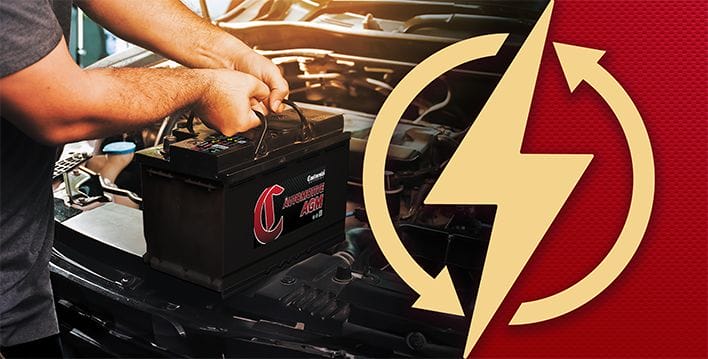
As an industry leader, Continental Batteries is the name to look for when you need batteries for golf carts -- traditional or electric.
There’s a lot of buzz these days about golf cart batteries, so it’s confusing to know what’s fact and what’s fiction. Let’s look at some of the myths and realities about golf cart batteries to help clarify the subject.
Many people believe that a battery creates a memory if it is not drained before it’s charged, so the theory is not to charge the battery at the midway point. Fact is, golf-cart batteries work better when they're charged after being used. And it doesn't matter how long or far you drive them.
There are different views about how often a golf cart battery should be charged. The reality is if you want to keep your golf cart battery at maximum capacity, use your golf cart battery often and always remember to do a refresh charge every 45 to 60 days, and even more frequently in hotter climates.
Electric or Traditional: Benefits and Drawbacks
Gas-powered golf carts operate with a traditional combustion engine. Most are four-cycle engines, but some two-cycle engines exist. Drivers fuel them with regular automobile gas, which can be added via a traditional gas station fuel pump or by dumping in gas from a can. Large rechargeable 38- or 48-volt battery cells power electric golf carts. The batteries must be charged regularly to ensure that the carts can continue to operate. When battery power fades, the cart's speed slows.
Both types of carts have benefits and drawbacks, and the golf cart that a particular person prefers depends largely on personal preferences and intended use.
Some golf cart owners prefer gas-powered golf carts because they run at faster speeds, can pull heavier loads and are easy to refill. More speed means making it from one place to the next in less time. Also, faster golf carts are sometimes allowed to drive on roads where slow-moving electric carts are not able to maintain minimum speeds. Given their benefits, gas carts are often popular among those who prefer a custom-built cart. These sorts of carts feature more amenities and options, which also drives up the price of the carts.
Electric golf carts produce no emissions, so they are friendlier to the environment. They also produce less noise than gas carts. Most electric golf carts cost slightly less to purchase and they are less frequently used for custom-built carts. Used electric carts are generally less costly to purchase than their gas-powered counterparts and they are more readily available. Also, electric golf carts cost less to maintain and operate because recharging them is less expensive than buying gas for a gas cart and because they do not require as much maintenance.
Electric golf carts pose problems because it can be more difficult to estimate when they will run out of power, not to mention they are more difficult to recharge. If a cart runs out of battery power on the golf course or in another location away from a charging unit, drivers can be stranded; electric carts also feature batteries that are not easily removed for charging. In many cases, they need to be towed or pushed when they run out of power.
Although gas-powered carts are noisier and produce more emissions, most golf cart owners drive battery-powered carts.
Continental Batteries can supply you with a wide range of golf cart batteries, both electric and traditional. Get the details you need at one of our 25,000+ retail sellers and distributors. Since 1932, Continental Batteries has been serving retail and commercial customers throughout the U.S. If it’s a battery you need, rely on Continental Batteries.






